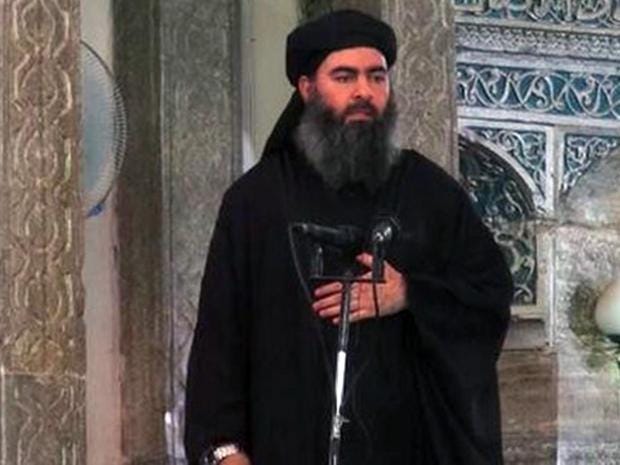
Russia's Foreign Ministry has said there is a high degree of certainty that Isis leader Abu Bakr al-Baghdadi is dead.
A new statement carried by RIA news agency on Thursday doubled down on Moscow's claim last week that its forces may have killed the secretive Islamist leader.
Baghdadi is believed to be in hiding in the region around the Syria-Iraq border, moving frequently and avoiding telecommunications to evade detection. According to the Russian foreign ministry, the strike in which he was allegedly killed occurred at the end of May.
The Russian authorities have not produced any proof since the initial claim was made. Washington DC said it could not corroborate the death and Western and Iraqi officials have been sceptical.
"His death has been reported so often that you have to be cautious till a formal [Isis] statement comes," a European security official speaking on condition of anonymity told Reuters.
On Tuesday, a spokesperson for the Russian Foreign Ministry appeared to backtrack on the initial claim, saying Baghdadi's death "could not be verified".
The Trump administration has also thrown cold water on the claims that two other senior Isis leaders and up to 300 foot soldiers were killed in Russian strikes around the same time as the alleged death of Baghdadi, noting "infirmities" in the reports.
“A strike of that size and that claim that would have happened that long ago without any knowledge is something that made me curious,” an official said.
However, if the report does prove to be true, it would be a huge blow to the extremist organisation, which is rapidly losing territory across both Syria and Iraq.
The US has also claimed that both Isis' grand mufti, or preacher, Turki Binali, and the head of its propaganda wing, Amaq Rayaan Mashal, have been killed in recent strikes.
Baghdadi gained international prominence when he declared the creation of Isis' so-called "caliphate" from Mosul's grand mosque after his forces swept across northern Iraq from Syria in the summer of 2014. He has not made a public appearance since.
On Wednesday night the 12th century al-Nuri mosque was blown up by militants wishing to deprive US-backed Iraqi coalition forces of claiming victory from the same spot the caliphate was created.
There are believed to be fewer than 300 militants left in Mosul's Old City, where the battle to defeat Isis is reaching its endgame after nine months of bloody fighting.
Across the border in Syria, the struggle to oust Isis from its de facto capital of Raqqa is in its early stages after US-backed Kurdish troops took back four neighbourhoods earlier this month.
The loss of both cities will effectively spell the end of Isis as a land-holding force, although observers expect the jihadi organisation to then mount a full-scale insurgency in both Syria and Iraq and to step up terror attacks around the world.







